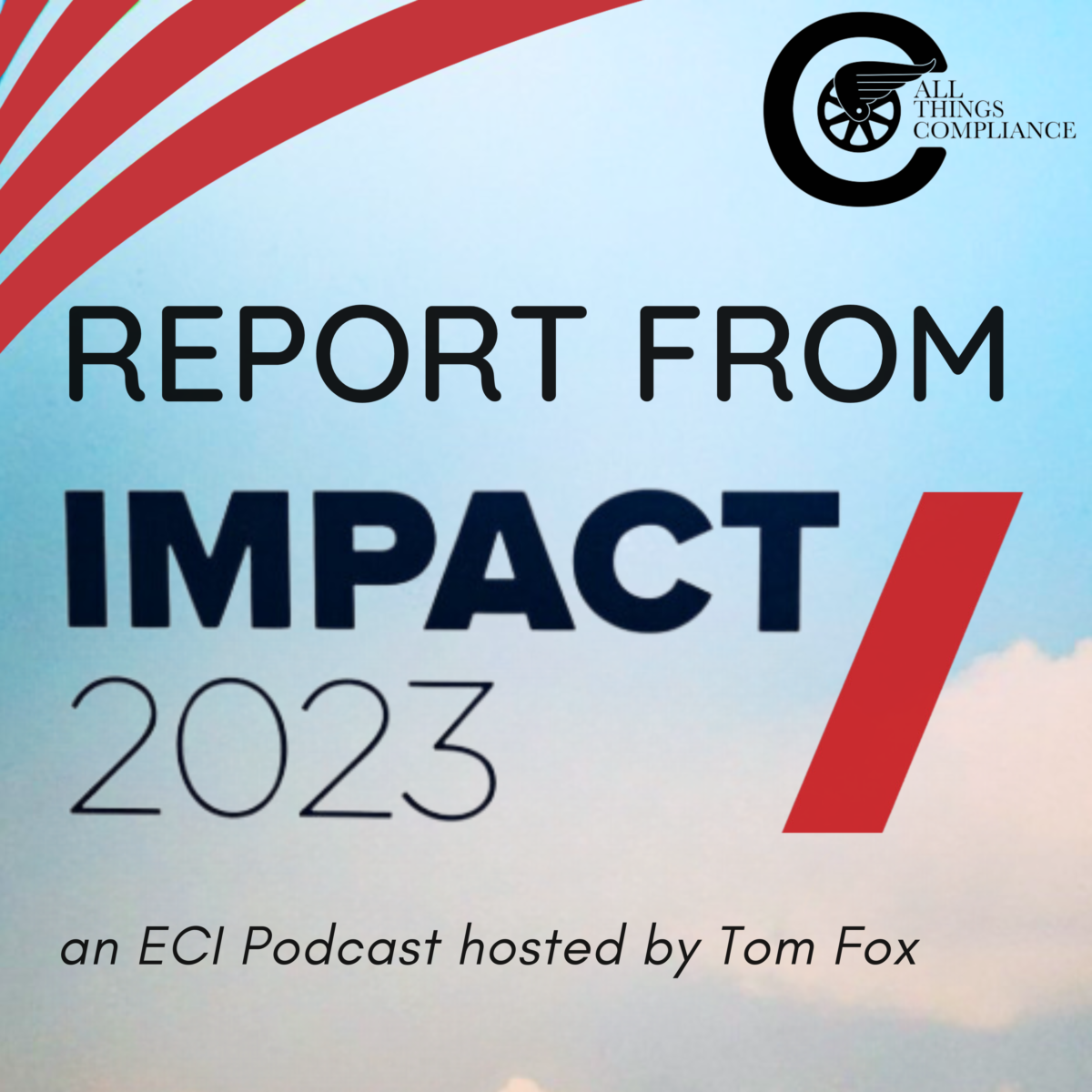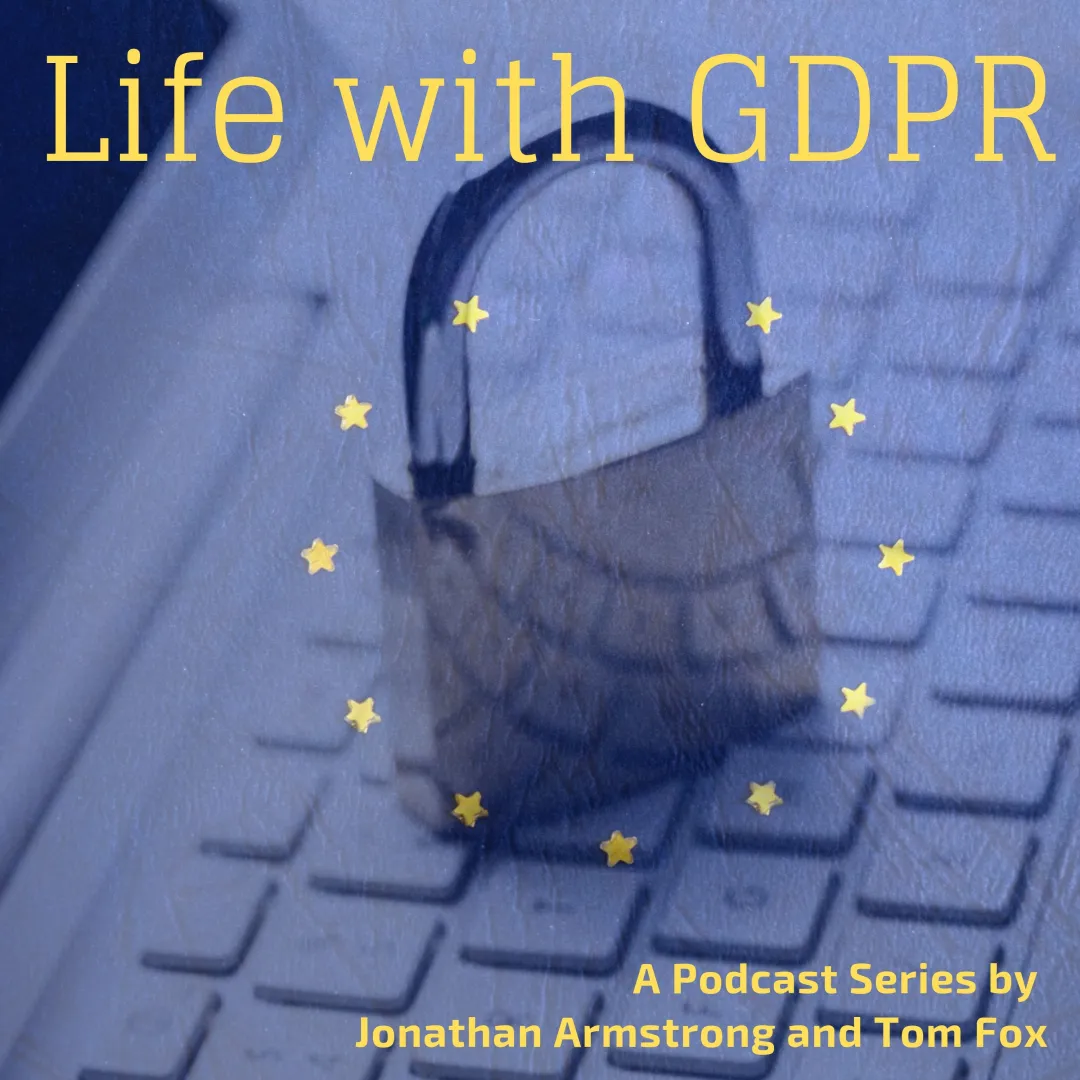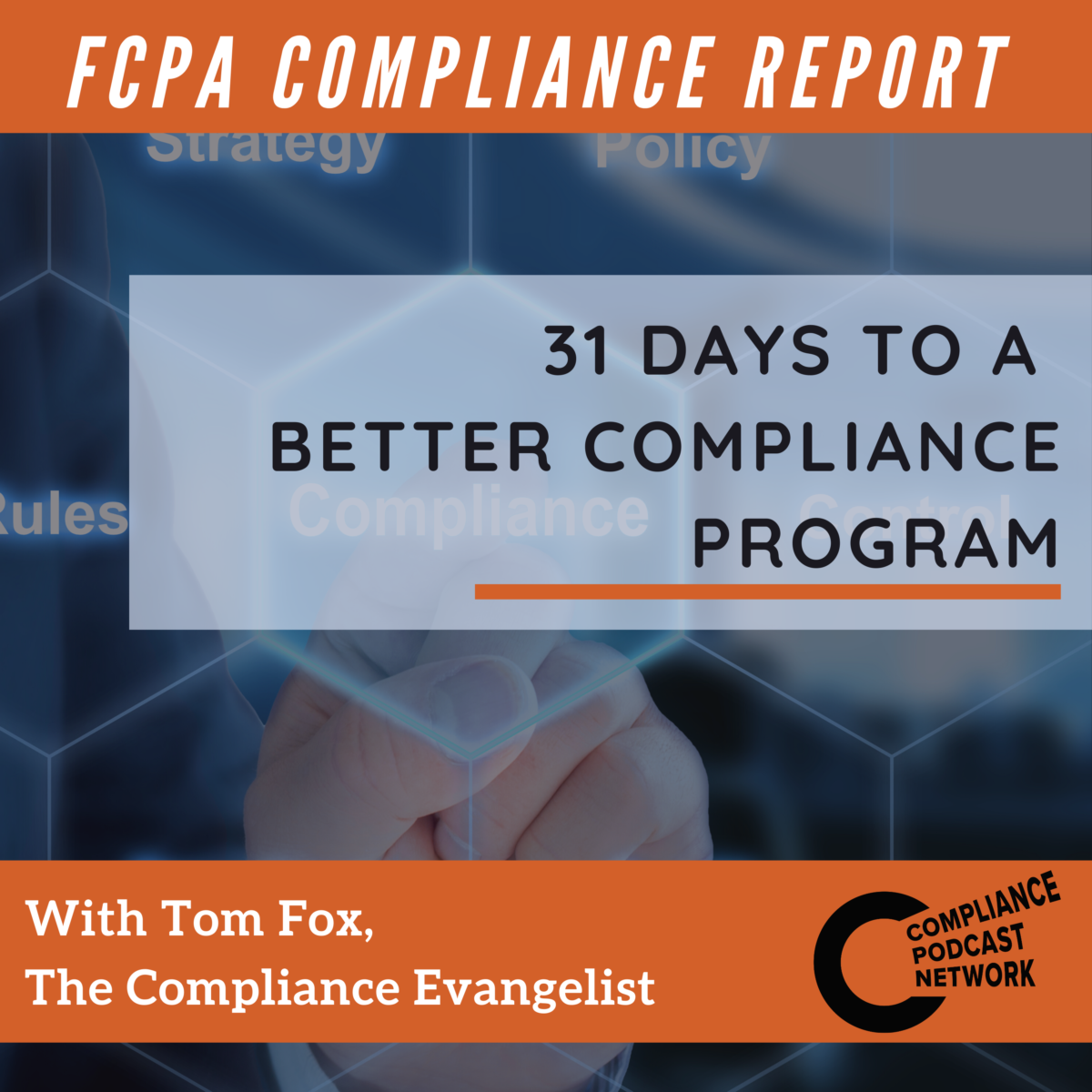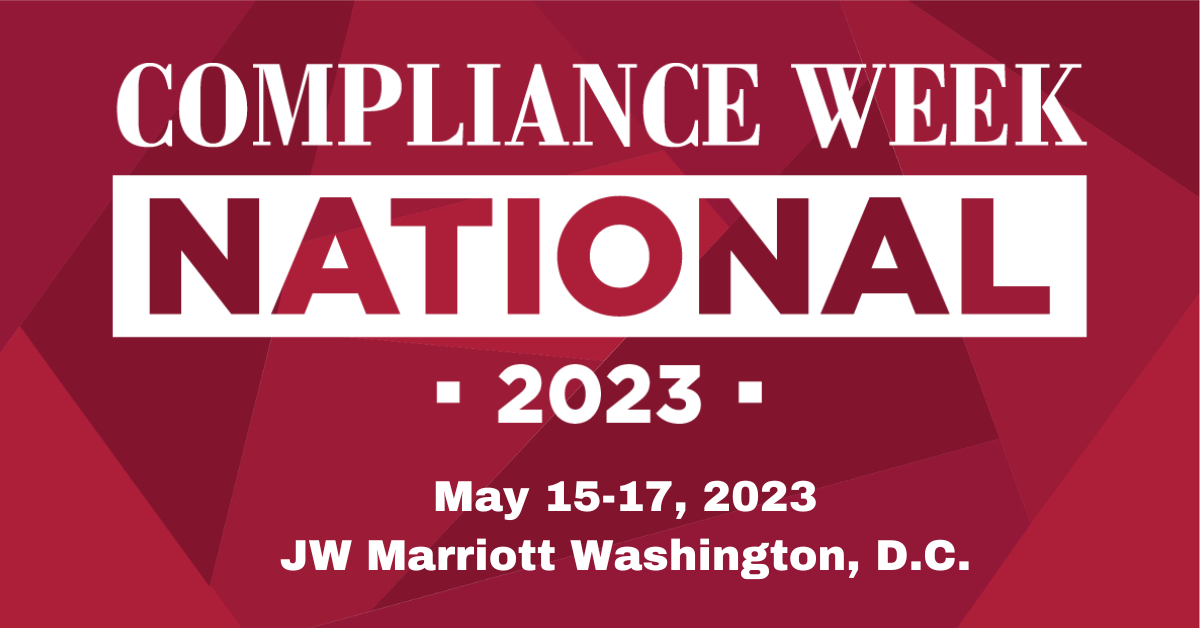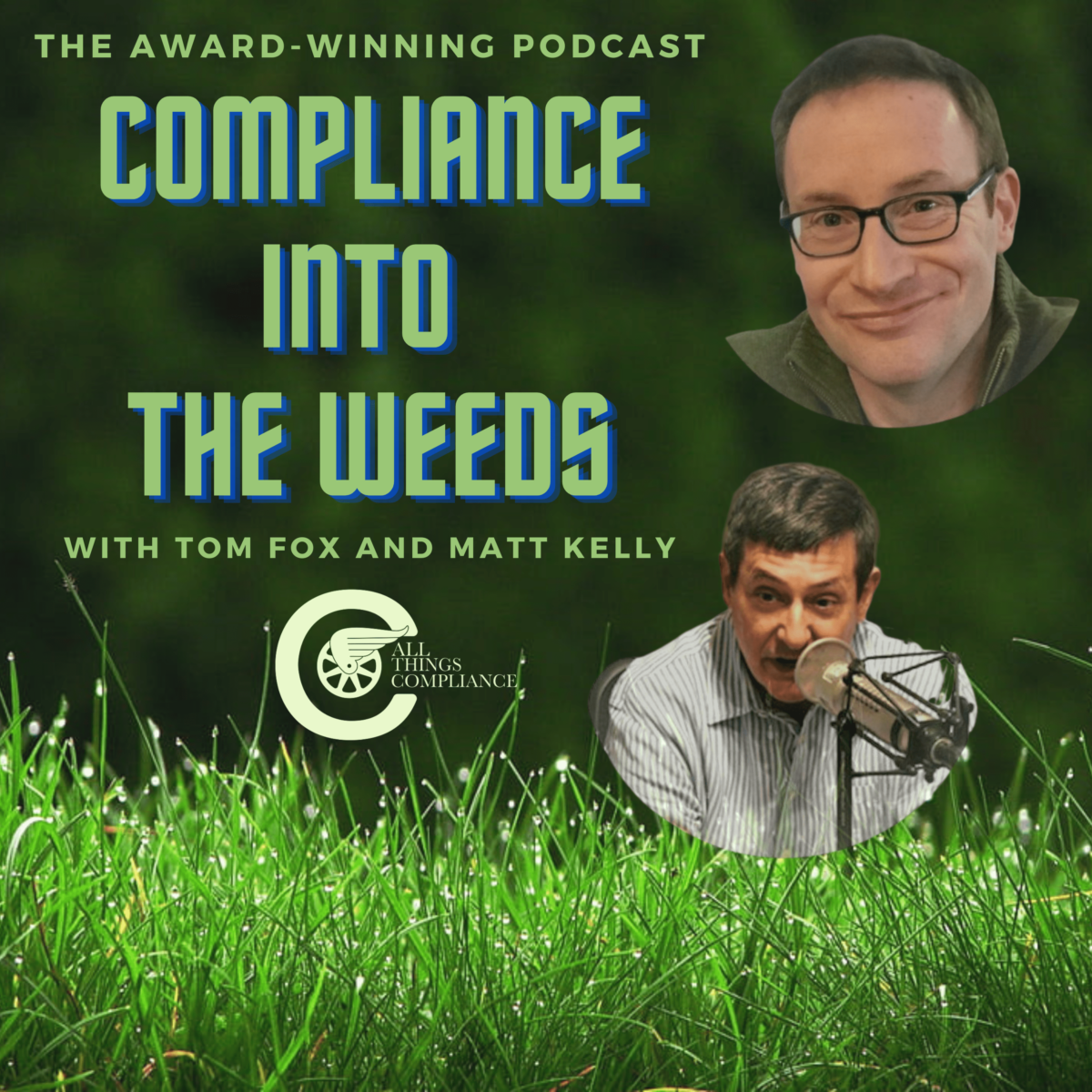ECI’s IMPACT 2023 was one of the leading compliance events in 2023. At this conference, Tom Fox, the Voice of Compliance, was able to visit with several of the speakers, exhibitors, participants, and one group of ethically-minded Girl Scout Troop. In this limited podcast series, Report from IMPACT 2023, Tom explores many of the most cutting-edge topics in ethics and compliance through short podcast episodes. Check out the full series of interviews. You will be enlightened, informed and come away with a fuller and more thorough understanding of the most cutting-edge topics in ethics and compliance. In this episode, Tom visits Andrew Weissmann, former head of the DOJ Fraud Section and current Podcaster and author.
The Department of Justice has been working to ensure that companies understand the rules of the road and what is expected of them to comply with the law. Tom Fox and Andrew Weissmann discussed the evolution of compliance programs from the Department of Justice’s perspective, the dialogue between the Department of Justice and the compliance community, the FCPA Pilot Program, the ABB FCPA Enforcement Action, and the need to use different forms of media to ensure that people are consuming the right information. They highlighted the importance of self-disclosure, extraordinary cooperation, and extraordinary remediation to receive a stunning result from the Department of Justice. Furthermore, they discussed the need to educate people in a variety of ways, such as Twitter, podcasts, articles, and op-eds, to ensure that policies are read and consumed. This podcast episode provides an insightful look into the Department of Justice’s approach to compliance and the need for different forms of media to ensure that people are informed.
Highlights include
· Compliance Evolution
· Compliance Education
· FCPA Recidivism
Resources
Prosecuting Donald Trump podcast
Connect with Tom Fox on Linkedin


